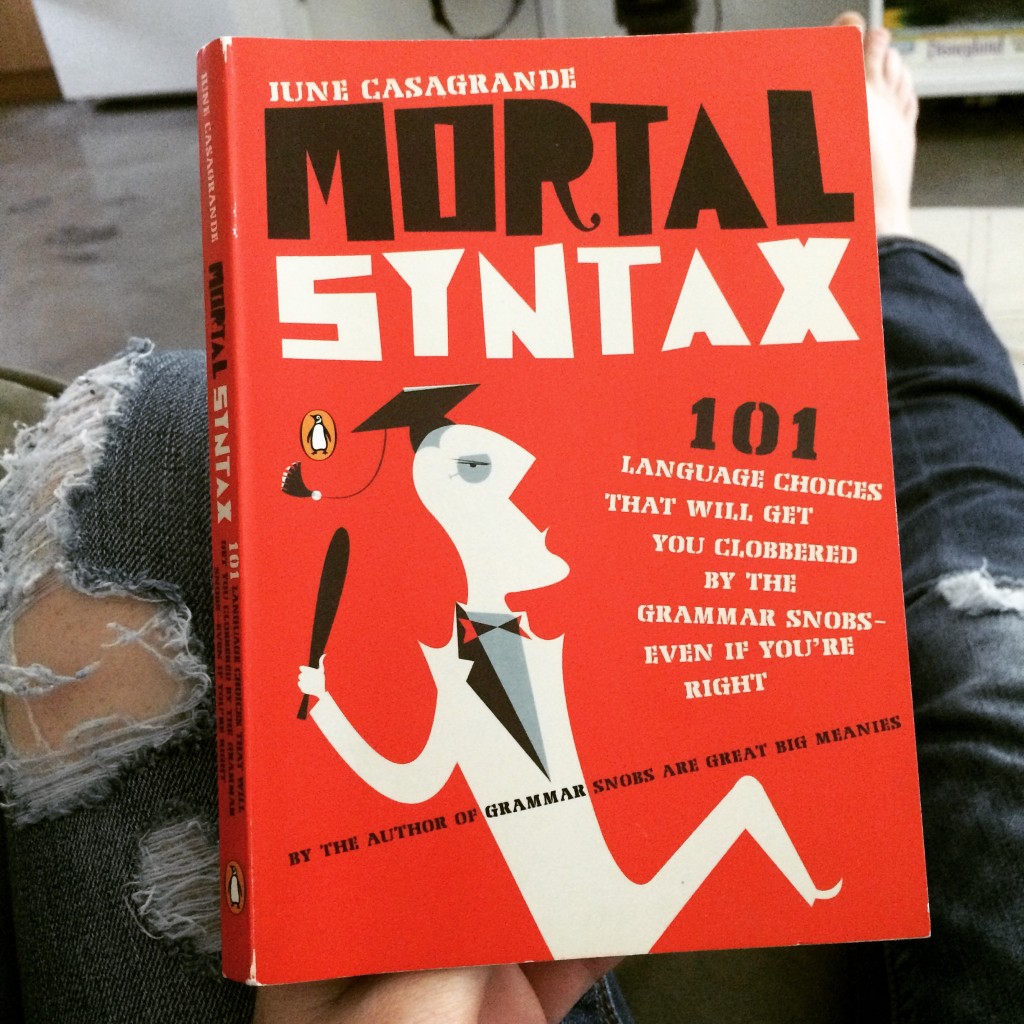You're not a bad writer, you just lack confidence
One of the most intimidating things someone with a website can face is writing content.
It seems like reluctance to write for public consumption can be attributed to two things: Fear of messing up, and of the inevitable ridiculing from the grammar police.
But do not fret, my friend. There’s a way to combat these fears.
If given the opportunity to correct, people will pounce
I’ve been writing publicly for a decade. In that time, I’ve had lots of people call me out on errors — some of them legit, some of them a figment of my critic’s imagination.
There’s one thing these criticisms all have in common: they were delivered in the kindest way possible.
Just kidding. They were delivered in snide, sarcastic, going-for-the-jugular ways.
Because people who criticize others’ grammar aren’t really trying to be helpful. They’re aching to prove that THEY ARE SMART and YOU ARE DUMB.
(Clearly I’m generalizing here; certainly there are folks who really want to be helpful, but they get lost in the sea of people waving their SMARTER THAN YOU banners.)
The point is this: You are not dumb. YOU ARE NOT DUMB. You just lack confidence. But that can be fixed.
Oh, and because it must be said: Correcting someone’s grammar doesn’t make her think you’re smart, it makes her think you’re an asshole. [Click to Tweet]
Believe it.
My deepest secret revealed
So you want to know a secret about me? It’s a big one.
I don’t really know how to write.
I don’t know grammar rules. I don’t know punctuation. Commas and hyphens are a damn mystery to me. I misspell words all the time. I use incomplete sentences and slang and swear words.
And you know what? I don’t care.
Not knowing the rules of writing has not stopped me from doing it, and even getting paid to do it.
You know the saying, “Fake it ‘til you make it?” I’m living it, pal.
So what gives me the confidence to write even though I don’t know what I’m doing? How do I combat the fears of messing up and of being ridiculed?
The key to not messing up (or messing up less, at least): part 1
So here it is, the big secret to my writing success. Here’s how I manage to write things that are somewhat readable:
I look everything up.
When I’m not sure if a comma is needed, I look it up.
Don’t know how to spell a word: I look it up.
Is this word hyphenated? Look it up.
Want to use a phrase I’ve heard before, but not totally sure it’s appropriate for the situation: I look it up.
Look it up, look it up, look it up.
Dictionaries, thesauruses (thesauri?), grammar blogs, books. These are my best friends.
I look up things I’m pretty sure are right just to make absolutely sure they’re right. I look up EVERYTHING.
It sounds time consuming, all this checking of references. It’s not. Mostly because the Internet exists, and it’s easy to type in what I want to know and wait for the answers to pop up.
To speed things up even further, I have some frequently used resources ready to go.
[caption id=”attachment_5051” align=”aligncenter” width=”640”] My copy of Mortal Syntax. Also, maybe I need new jeans?[/caption]
My copy of Mortal Syntax. Also, maybe I need new jeans?[/caption]
Where to look things up
Here are some of the resources I keep on standby:
Grammar Girl/Quick and Dirty Tips. This is a great blog with lots of good tips. You can read the latest posts or search for the specific thing you want to know.
Mortal Syntax by June Casagrande. A friend gave me this book years ago and sadly I’m just now getting around to reading it. It’s very helpful for knowing why something is or isn’t write right.
Merriam Webster Dictionary. This is a free dictionary app for your phone. Free! I’ve used it many times, even while constructing a simple text.
Thesaurus.com. Tired of using the same word over and over? Change it up. Alter it up. Swap it up.
Hemingway. I once wrote a blog post about this cool app, which grades the readability of your writing. It will tell you if you’ve got a run-on sentence or if you’re using a 50-cent word when a simpler one will suffice.
Punctuation guide. Again, I found this useful enough to write about. It’s a guide that tells you how to use certain punctuation. Worth taking a look if you’re constantly flummoxed by those damn commas.
Other people. That’s right. If you want to know if something sounds correct, send it to someone you trust to read.
The key to not messing up (or messing up less, at least): part 2
So, while you’re doing all of this looking of things up, it might help to actually keep a small list of things that consistently trip you up.
If you can never remember whether it’s “loose” or “lose,” write examples of each proper usage on a sheet of paper. Eventually you’ll learn the difference by heart, but until that happens, refer to your list while writing.
I find that physically writing things down often helps me learn them faster, so there’s that benefit, too.
A few tips to get you started
Here are some things are easy to screw up.
1. Loose vs lose
Not "loosing." Never "loosing."
My pants are loose.
I hope we don't lose this game. He is losing the game for us.
2. It's vs its
If it doesn't make sense in the sentence to say "it is," don't use the apostrophe.
It's (it is) a nice day. It's (it is) my dog.
Its roof is caving in. Its fur is wet.
3. Could've/Should've/Would've
The "'ve" part of all of those words is have, not of. See? It looks like the second part of have.
I could've (could have) gone to the movies.
I should've (should have) had that second hot dog.
I would've (would have) invited you, but you're awful.
4. Everyday vs every day
Everyday = commonplace. Every day = each day.
These are our everyday (common) dishes, not the good stuff.
We use these dishes every day (each day).
5. Who vs whom
Unless you're talking to a British writer from the 1800s, just use "who." Seriously. Whom cares.
And speaking of not caring …
The art of not giving a crap what others think
As for that second fear I mentioned at the top of this post, the fear of being ridiculed, the key is to simply not give a crap.
Because here’s the thing: most people don’t know grammar rules. And if they do? So what. We already established that they’re probably assholes anyway.
Your message is what counts.
Focus on what you’re trying to say, present it the best you can using resources like the ones mentioned previously, and eventually you’ll gain the confidence you need to write without breaking into a sweat every time.
And if you mess up once in awhile, you mess up. The world will continue to turn.
Take it from someone who just cranked out 1,100 words while knowing nothing about writing.






